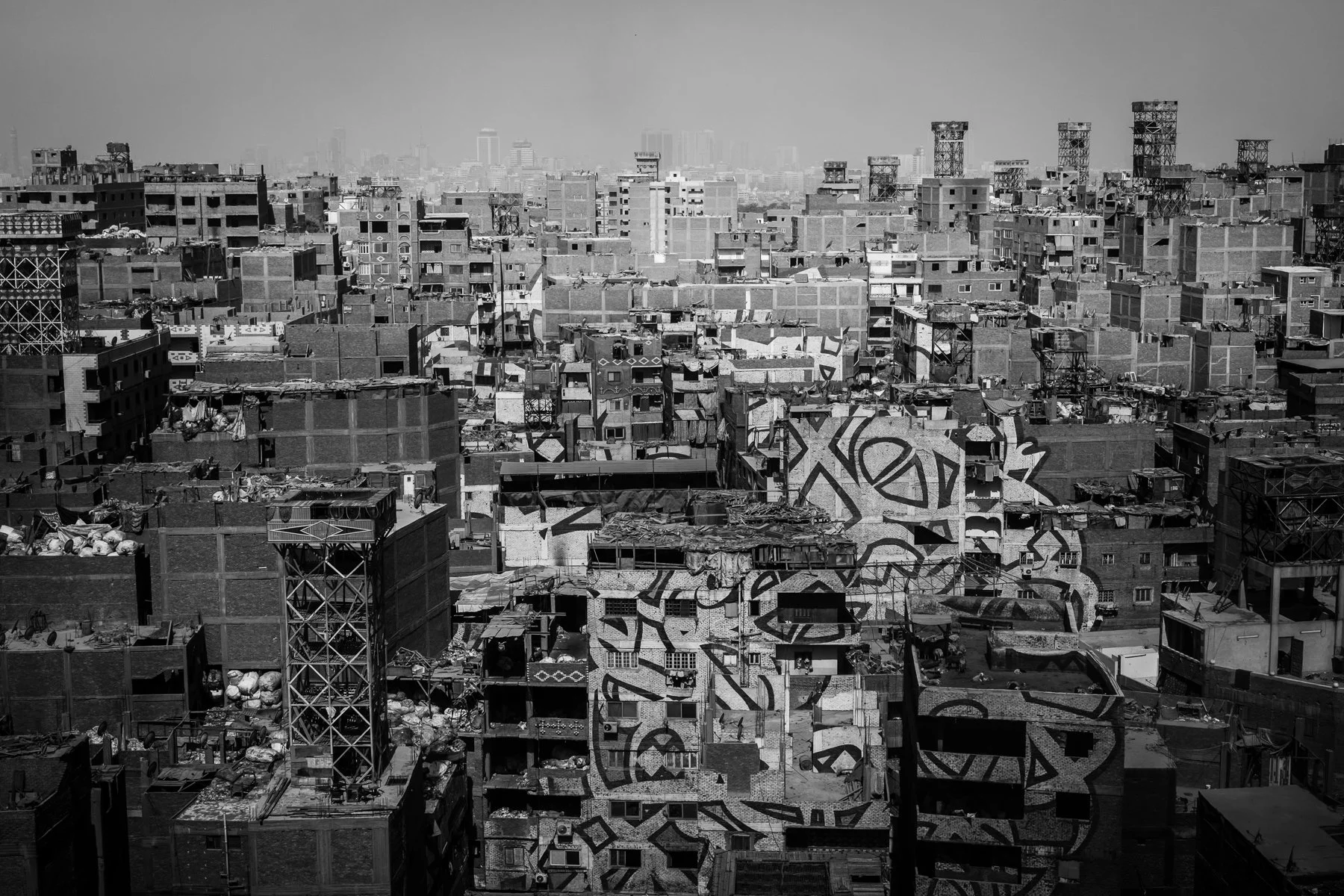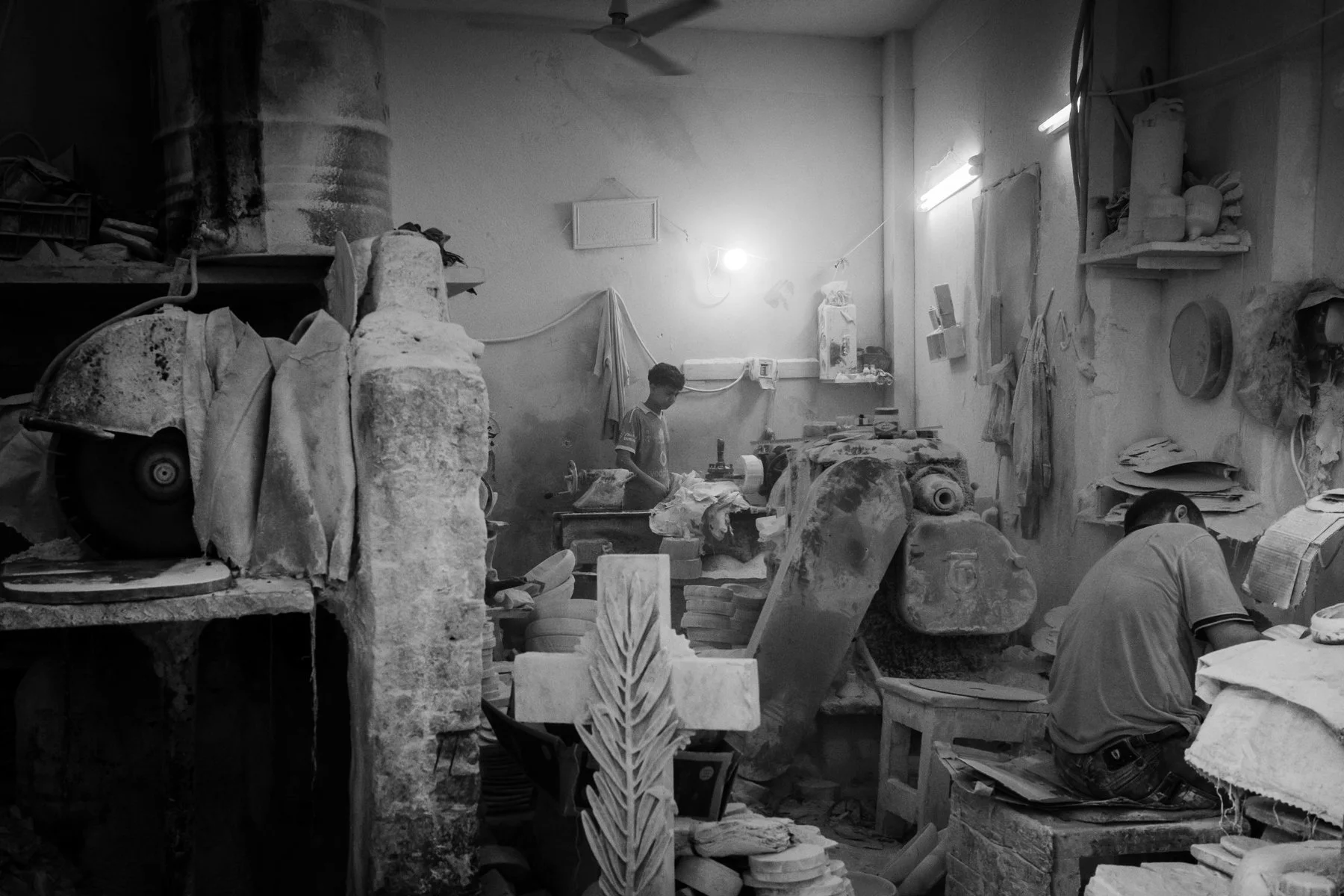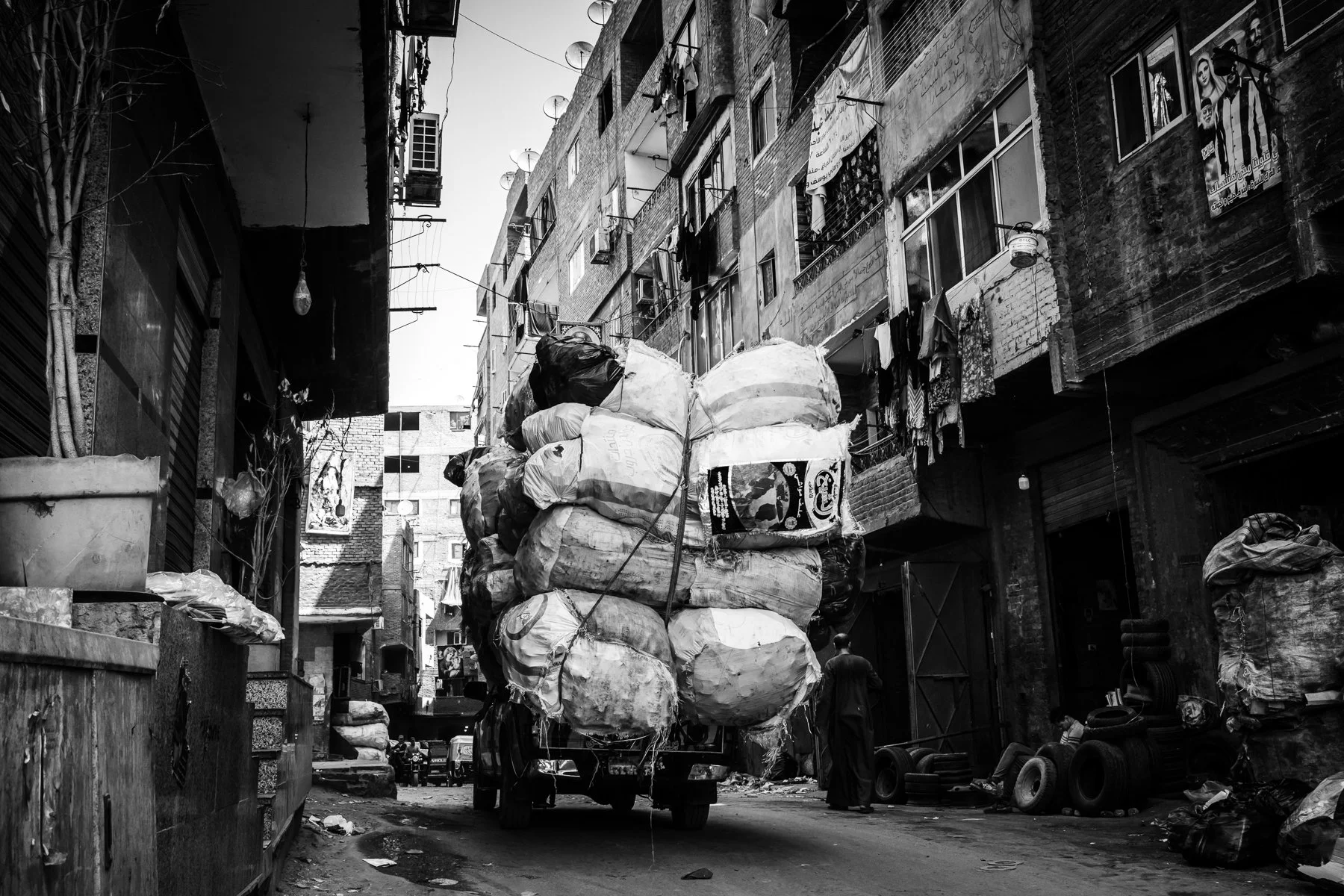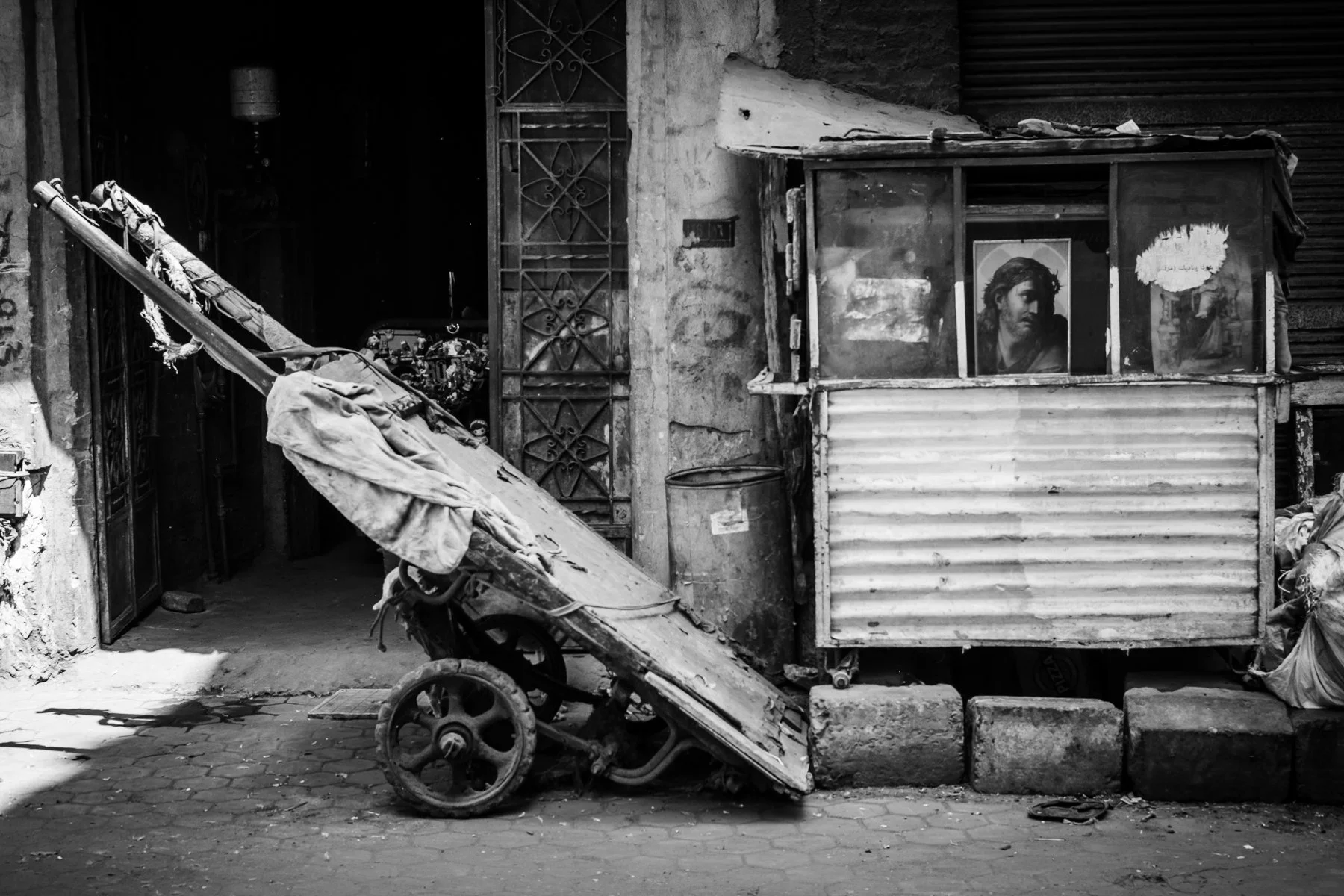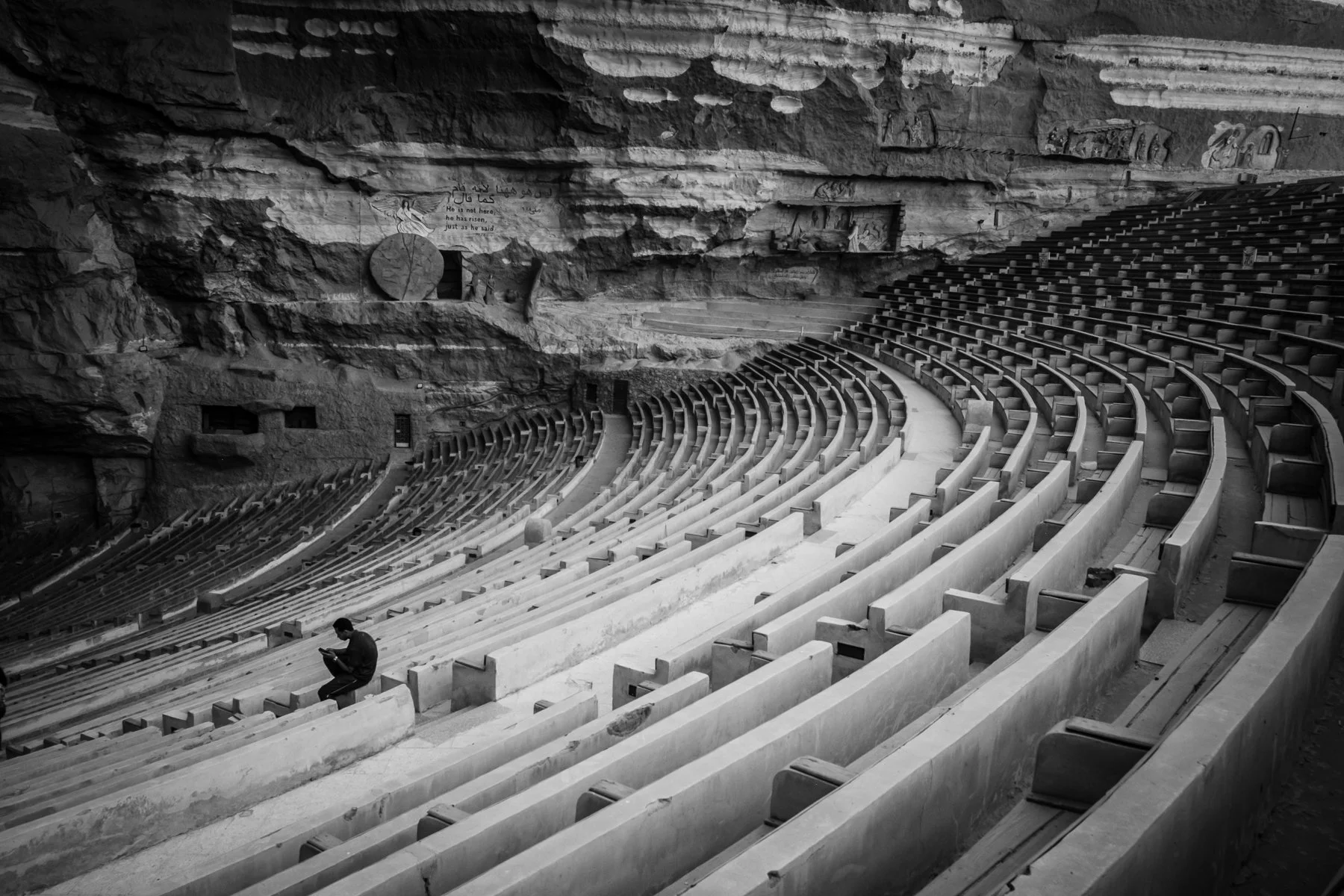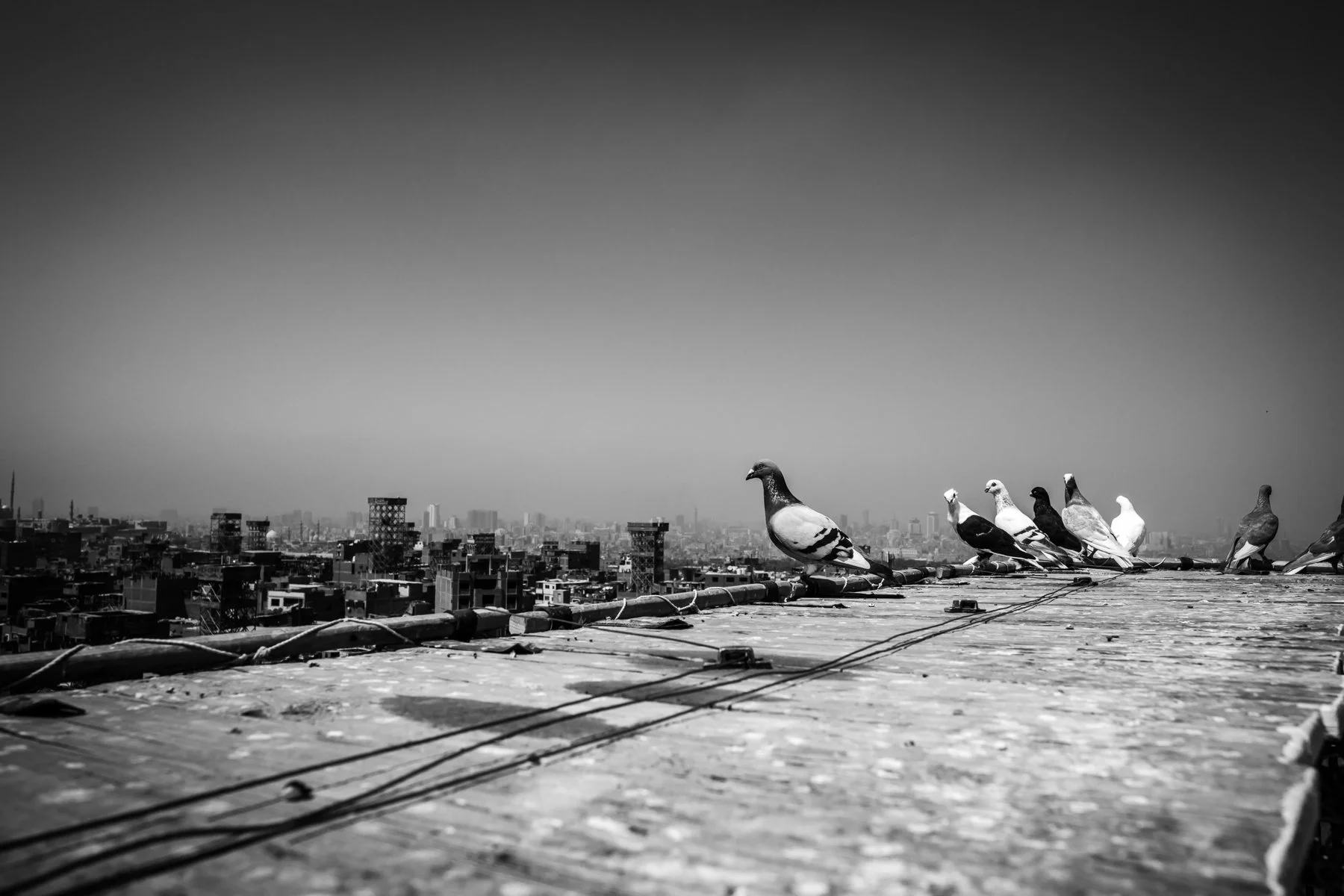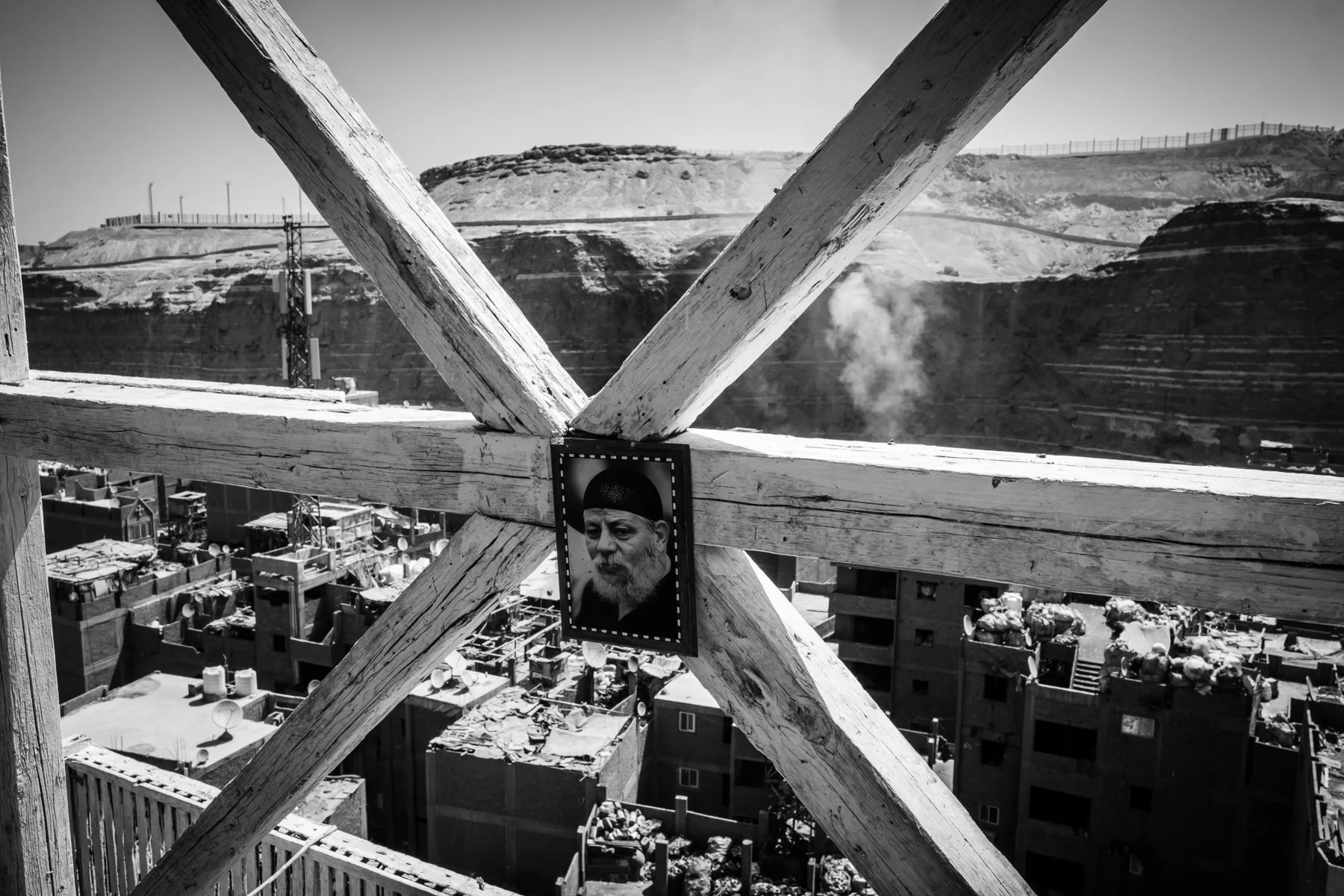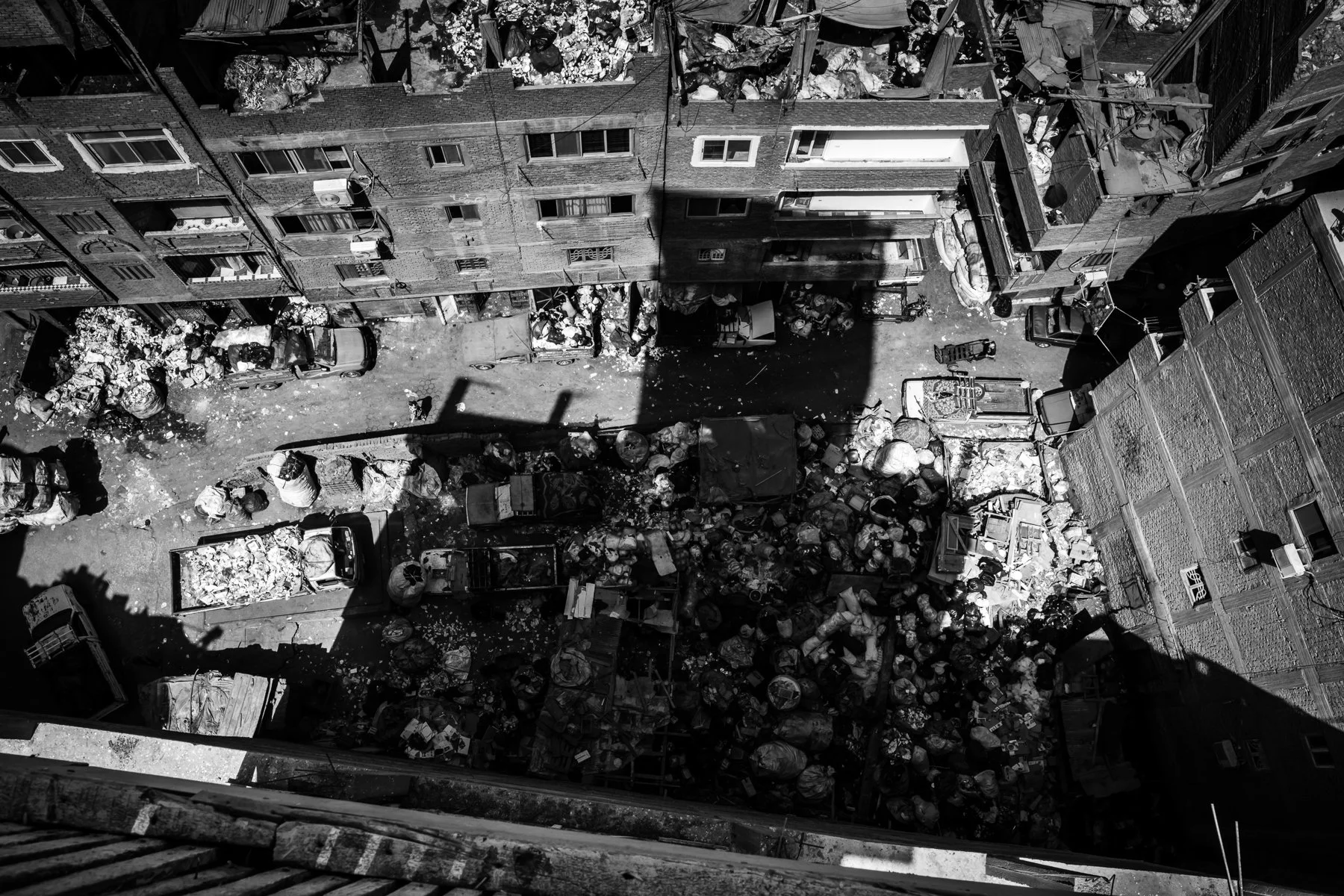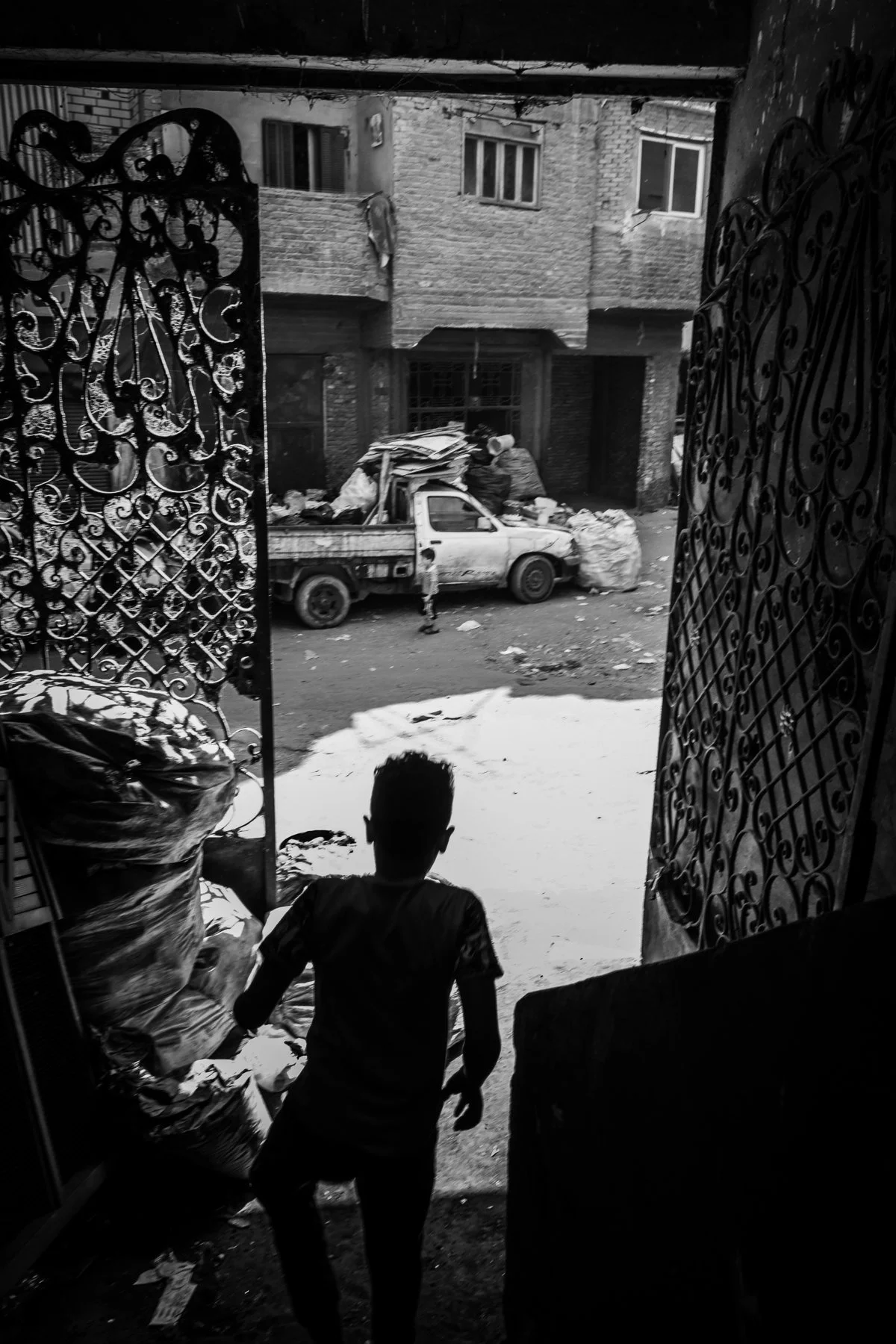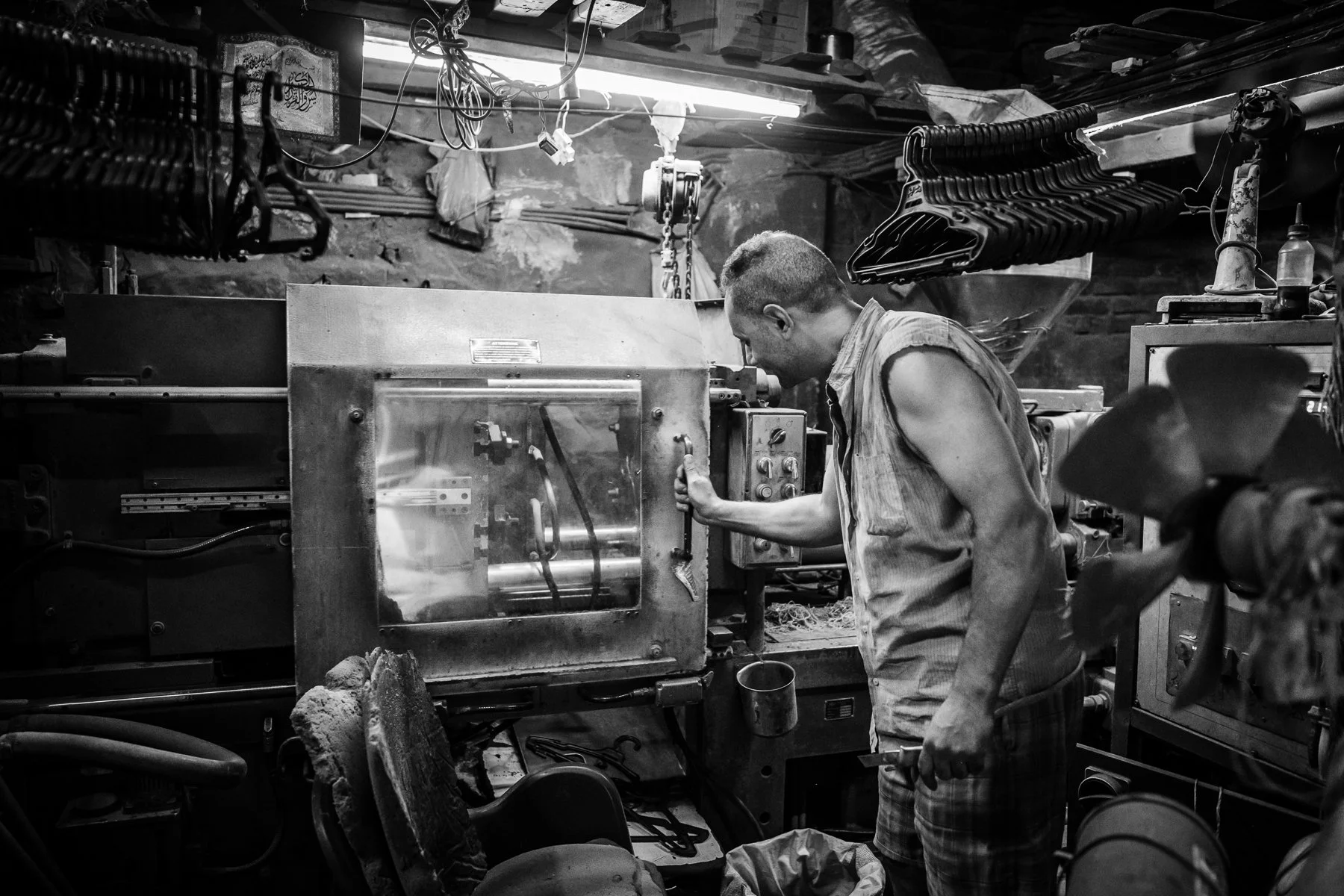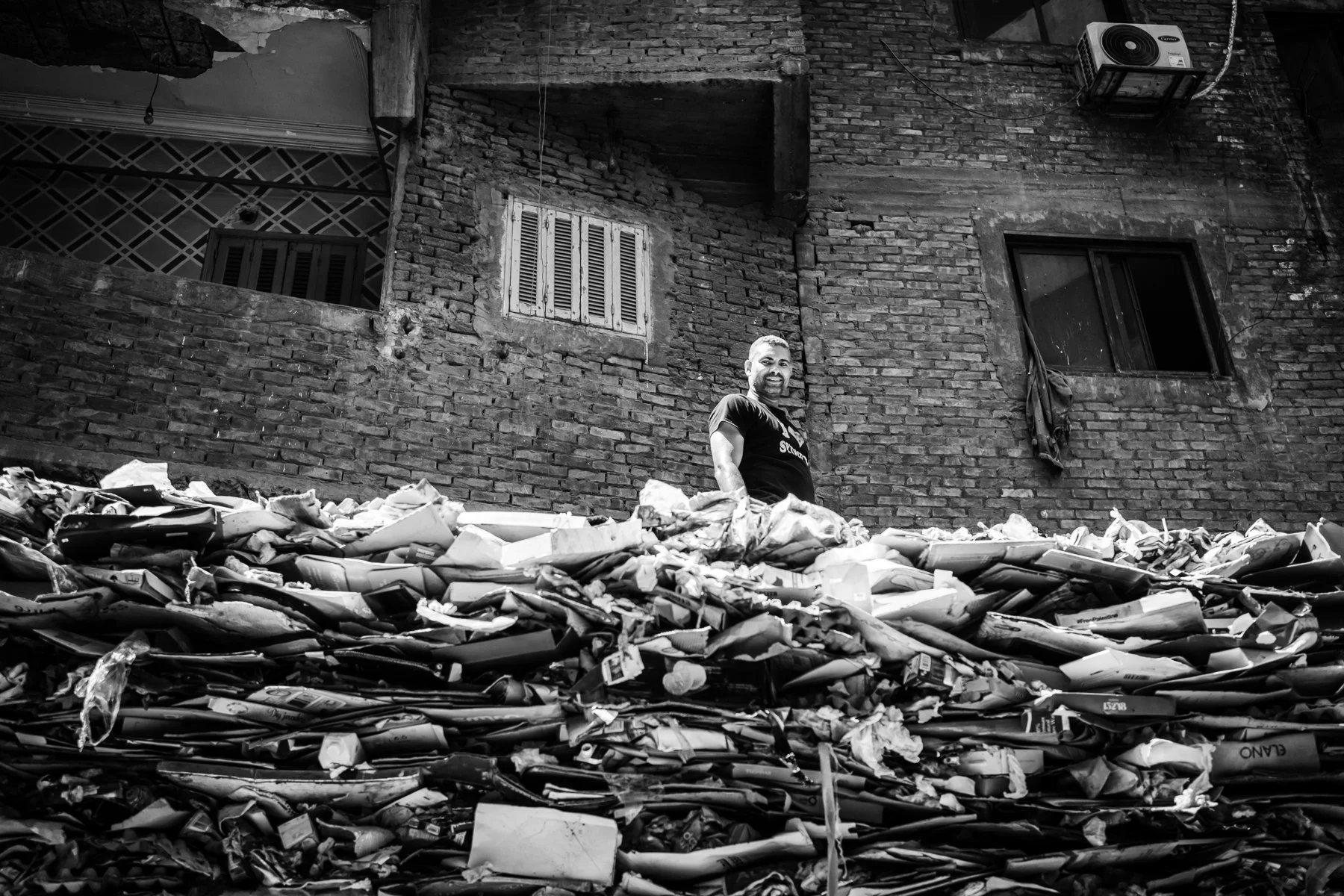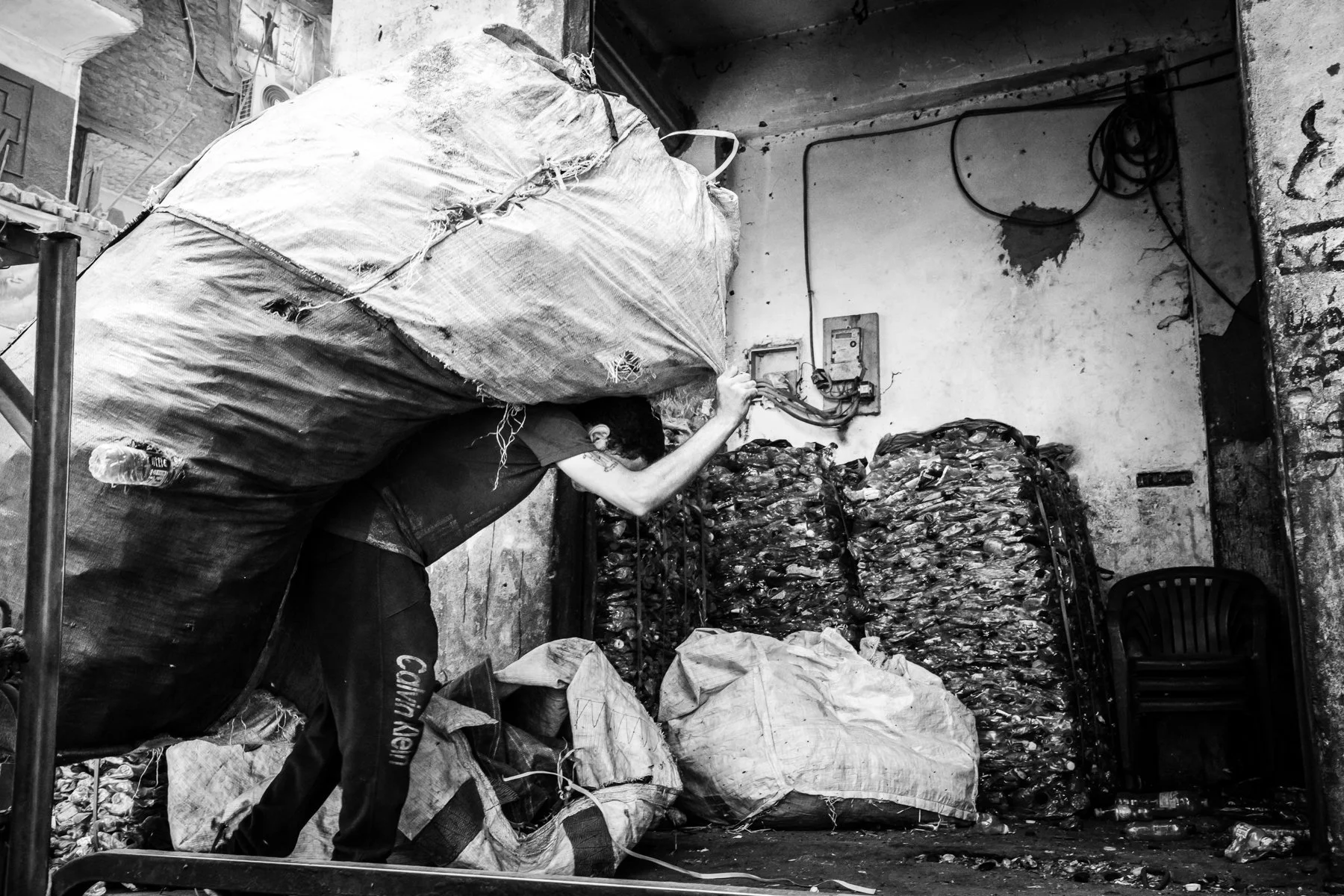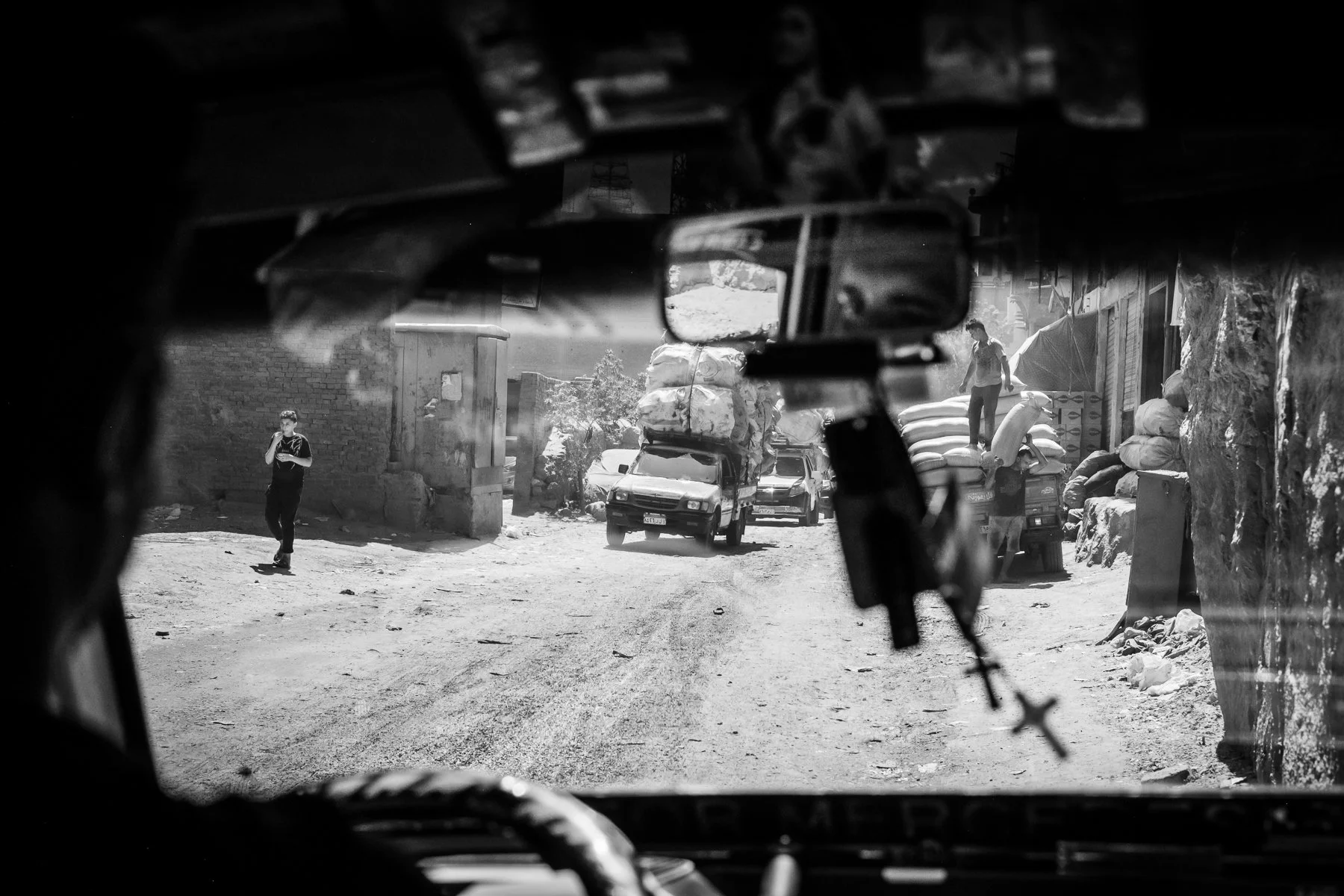Zabaleen is a deep visual narrative of the hidden world of Cairo’s informal waste collectors, a Coptic Christian community that has turned the city’s discarded materials into a way of life. Through portraits and environmental scenes, this series sheds light on the resilience, dignity, and unseen labor of the Zabaleen, who have built one of the world’s most efficient recycling systems amid the sprawling chaos of Egypt’s capital.
For generations, the Zabaleen have navigated the narrow streets of Cairo, collecting, sorting, and repurposing the city’s waste. Their work is both a necessity and a legacy, passed down through families who transform what others discard into something of value. Yet, despite their indispensable role, they remain marginalized—living and working in neighborhoods where towering piles of refuse stand alongside homes, schools, and churches.
Cairo, a megacity of over 20 million people, generates immense amounts of waste every day, and the Zabaleen are at the heart of its survival. Without them, the city’s waste crisis would spiral out of control. Their methods, rooted in meticulous hand-sorting and community cooperation, achieve recycling rates far beyond those of most modern waste management systems. Yet their contribution is often overlooked, and their way of life is constantly threatened by government policies, urban development, and economic shifts.
In the heart of this reality lies Mokattam, known as “Garbage City,” where some of the Zabaleen live and work. The streets here tell stories of hardship and perseverance—children helping their parents sort plastic, women weaving discarded materials into new products, men driving overloaded carts through the city’s labyrinthine roads. Amidst the refuse, there is also faith: the Monastery of Saint Simon, carved into the cliffs of Mokattam, stands as a spiritual anchor for a community bound together by shared belief and purpose.
Zabaleen captures these intertwined narratives through powerful portraits and contextual imagery, revealing the humanity within the labor. It is a window into a world often ignored—a world where survival, ingenuity, and faith converge in the unlikeliest of places.
